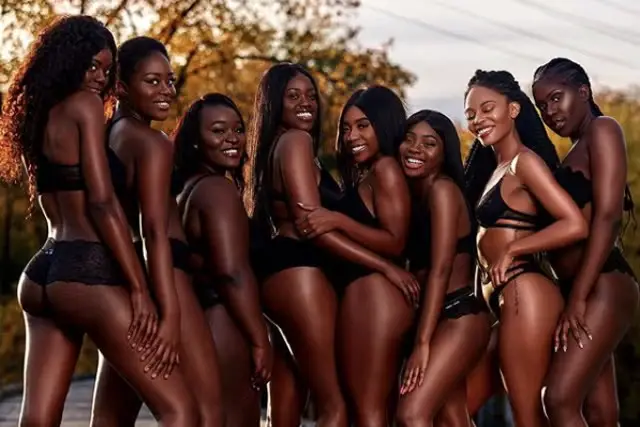If you’ve heard the saying that black people don’t crack, you may be wondering, what does that mean?
Does it mean that black people don’t age?
Well, it simply means that black people retain their vibrancy and youthful look even when they advance in age.
The phrase is a colloquial expression in African American communities, where it is commonly used to refers to the notion that people of Black or African descent often age more slowly and maintain youthful appearances compared to other ethnicities.
Origin and Popularity of the Phrase
The origin of the phrase is unclear, but it has been used for decades in Black communities.
What we are certain of is the fact that the phrase has roots in the celebration of Black beauty and emerged as a positive affirmation within the Black community, emphasizing the strength and durability of Black skin.
It has been used over the years as a form of resistance against discriminatory beauty standards that often favor Eurocentric features.
It also challenges societal stereotypes that link aging with a decline in attractiveness (i.e. it challenges the notion that aging is something to be feared.
Scientific Explanation

While aging is influenced by several factors like lifestyle and environmental factors like diet and residence, science has proven that matte, black, and mixed skin tends to age less quickly than caucasian skin.
Let’s zoom in now and gain a better scientific understanding:
How Does Our Skin Age?
As one grows, the skin evolves and undergoes certain changes, and by the time we clock 30 – 35 years, the skin starts to thin and becomes more dehydrated.
That means that it loses its firmness and elasticity, making its tone and brightness wither, and the dull, sagging, fragile, wrinkled, and aging skin starts to be visible.
For better understanding, our skin has two types of fibers: the collagen fibers that give it firmness and elastic fibers that guarantee elasticity and resistance, ensuring it returns to its initial position when pinched.
With time, as one grows, these fibers become difficult to renew as they degrade and decrease, leaving the skin withered.
But Black doesn’t crack. This means that dark people have more dense, elastic, and pigmented skin with a more fiber network, unlike Caucasians, and this explains why dark skin is firmer and more resistant, thus delaying wrinkling.
Why Does Melanin Skin Age Differently?
Wrinkles and fine lines are less common in black people, especially those with a high melanin than our lighter counterparts. Well, here are three reasons why melanin skin ages slower:
I. Black People Have Melanin
Extrinsic aging usually happens due to exposure to UV light, pollution, and environmental stressors. These harmful factors lead to a gradual breakdown of collagen, hyperpigmentation, uneven skin tone, textural imperfection, and fine lines.
However, for the dark people, this is a blessing. Their skins, which are rich in melanin, contain melanocyte cells that play two roles. It synthesizes melanin, which plays a vital role in skin pigmentation and offers photo-protective function as it has a high ability to absorb UV light from the sun.
Thus, it helps fight against skin damage caused by radiation (the main cause of aging). Thus, that helps in slowing down the aging process due to the inherent collagen damaging protection from the strong UV light.
II. Black People Have Denser Bones
Aging does not only affect the skin. Our faces have bones that decrease in density as we advance in age, which greatly affects how we look.
However, changes to the structure of the facial bones are less prone to black people than lighter people.
A study by Rutgers New Jersey Medical School shows that black people have denser bones around their faces that don’t break quickly.
III. Black People have Thick Skin.
Intrinsic aging is an epidermal change that results from gradual collagen loss that happens as one age, which adds to facial volume in some areas like the cheeks, jawlines, temples, and necks, bringing forth deep wrinkles and folds.
Well, when it comes to black people, they have a thicker dermal layer and four layers of the epidermis that guard the skin against elastin breakdown, and that’s one big reason why black people look younger than their age.
But, Does It Mean That Black People Don’t Age?
Scientifically, skin aging is a complex process influenced by genetic factors, environmental exposures, and lifestyle choices.
While melanin, the pigment responsible for skin color, provides some natural protection against the harmful effects of ultraviolet (UV) radiation, it doesn’t make black individuals immune to aging.
To maintain healthy skin and minimize the signs of aging, individuals, regardless of skin color, are encouraged to adopt skincare practices.
This includes using sunscreen to protect against UV damage, staying hydrated, following a balanced diet rich in antioxidants, and incorporating a consistent skincare routine.
Perception of “Black People Don’t Crack” Phrase Outside The Black Community
This phrase “Black Don’t Crack” is mostly seen positively within the Black community, where it’s seen as a source of pride, challenging negative ideas about aging. It promotes unity and celebrates the unique qualities of Black skin.
However, some critics argue it oversimplifies Black experiences and may contribute to unrealistic beauty standards.
In particular, it’s argued that the phrase disregards the diversity of Black women’s skin and the efforts put into achieving good skin. It also pressures Black women to strive for the “perfection” of youthfulness.
In mainstream culture, opinions vary, with some appreciating it for challenging traditional beauty norms.
As such, discussions surrounding the phrase should acknowledge the diversity of Black experiences and emphasize the importance of individual perspectives within the broader cultural context.
Additionally, while the phrase is rooted in pride and self-affirmation, it’s essential to recognize that experiences of aging vary among individuals, and not everyone may align with this sentiment.
Closing Thoughts
As seen, science backs up the saying that blacks don’t crack. Due to its high melanin pigmentation, the dark skin is sheltered from harmful UV rays, helping it to maintain its firmness thus slowing aging.
That said, it is important to note that the blacks don’t crack is simply a cultural saying that highlights the perceived resilience of Black skin and by extension serves as a reminder that aging is a natural part of life, with visible effects varying widely among individuals.
Embracing one’s natural aging process and taking proactive steps to care for the skin can contribute to overall well-being and confidence, irrespective of ethnicity or skin color.



